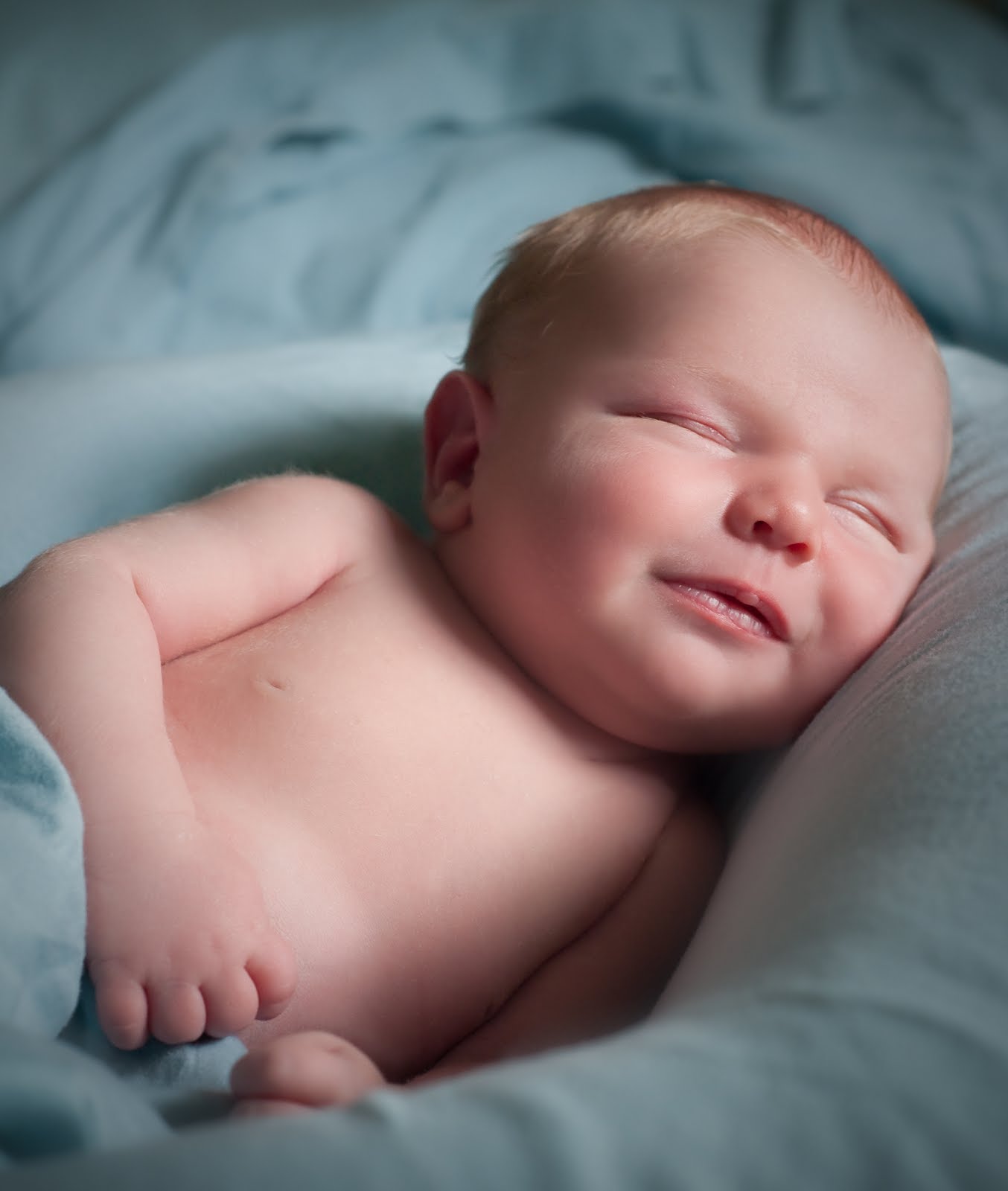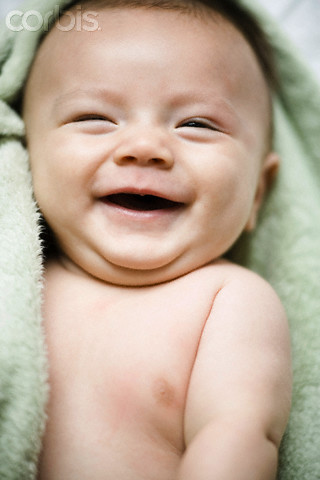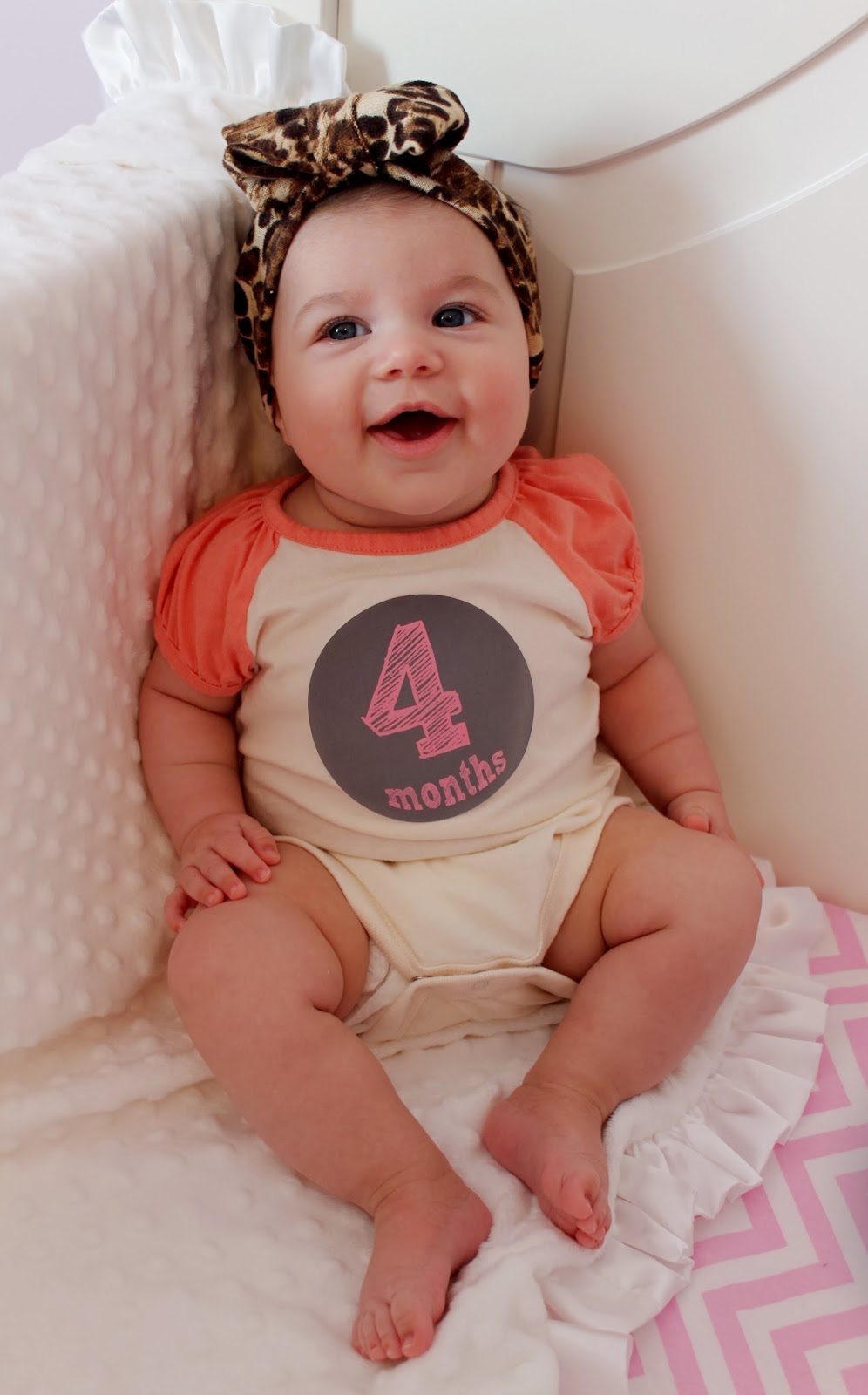A baby's laughter never fails to make parents and other people laugh. This is the magic power of the sweet, contagious sounds they make. If you are going outside with your baby, it is not surprising to find that your infant's laugh can inspire more smile and laugh around you. New parents like you may wonder when your babies will start smiling and laughing, and we have the answers for you in this article.
When Do Babies Start Laughing?
Very young infants start laughing on the first month of life, although others may wait up to the fourth month of age. At first, these babies may be surprised at their own laughter, which may sound giggly. In time, however, a baby begins to recognize her own noise and does not get shocked anymore. Let get to know more about smile and laugh of babies in the following form.
|
Months |
Smiles and Laugh |
|
|
Neonates may smile from the day they are born to about one month, but at that time they show no emotion. They may smile spontaneously when they are drowsy or asleep, but these may become fewer as they grow. |
|
|
Babies gradually respond to stimulation at this age.Their first smile when they are awake usually appears at 6-10 weeks. Their vision improves and they start to recognize faces. They respond to sounds, like music and parents' voices. Finally, they will smile because of visual stimulation. |
|
|
Babies learn to laugh, recognize faces, hold theirheads upright, kick legs, open and close their hands by the end of 3 months. Some are able to squeal, coo, recognize voices, and lift heads to their chests. Those who are advanced in childhood development may make funny sounds and learn to roll over. |
|
|
Babies begin laughing, squealing, smiling, making new sounds, and communicating with parents. They also begin making consonant sounds, making noises to get attention, and turning away or crying out when tired or uncomfortable. |
When Should I Worry?
Babies may show varying rates of development. If your baby is not laughing out loudly by four months, but he or she is trying to communicate through other forms by smiling or babbling, the baby is most probably developing normally. However, if your baby is not responding to you at all, she may have some vision, hearing or other developmental disorder, such as autism.
It is important to catch developmental delays as early as possible so that proper intervention may be done. Signs of early autism may be noted in babies at the age of 6 to 12 months. These include failure to smile, babble, imitate sounds or respond to their parents or caregivers. They may also show poor eye contact, uncommon postures, unusual movements, and lack of attention seeking behavior. Their motor development, such as rolling over, crawling, may be markedly delayed. Consult your doctor immediately if you observe any of these or other signs that concern you.
How Can I Make Baby Laugh?
1. Peek-A-Boo
Try playing peek-a-who with your baby by popping your face from an object. This makes most babies laugh, and they may demand you to do this over and over again.
2. Other Babies Together
Babies love seeing other babies' faces. If they do not have any young playmates around, try showing them pictures of other babies' faces to make them smile and laugh.
3. Strange Sounds
Strange sounds and noises are common ways moms can make their babies giggle. Try making different voice, sounds or slurping noises, which never fail to make them laugh.
4. Puppies and Cats
Friendly family pets such as puppies and cats can make babies laugh. However, keep their arms and legs safe from scratches and supervise babies' playtime with the pets.
5. Raspberries
Pretend to eat raspberries off your child's face and body by kissing her all over and making belly bubbles and fart sounds. These playful gestures usually make babies burst out laughing.
6. Tickling
Gently tickling a baby’s feet, armpits, inner thighs and under chin is usually rewarded with laughter and uncontrollable giggles. Babies are usually sensitive to tickles, so they may laugh whenever you change their clothes or bathe them.
7. Funny Face
Funny faces always make a baby chuckle. Try sticking out your tongue at her or pretend like you're sneezing. This will surely make her laugh out loud.
8. Chasing Games
When your baby crawls on the floor, chasing him or her around is also a fun and crazy way tomake herlaugh. She may also have a wild fit once you pretend to catch her!
You can enjoy the laughing of cute babies from the video:


 0-1
0-1 1-2
1-2 3-4
3-4